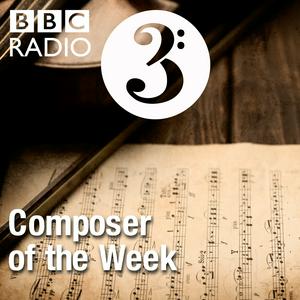Donald Macleod delves into the life of the great German composer Heinrich Schütz.
Music featured:
Wohl denen, die ohne Wandel leben, SWV 482
Tugend ist der beste Freund, SWV 442
O primavera, SWV 1
Wohl dem der ein tugendsam Weib hat, SWV 20
Zion spricht, der Herr hat mich verlassen, SWV 46
En novus Elysiis, SWV 49 (Syncharma Musicum)
Ich heb mein Augen sehnlich auf, SWV 226 (Becker Psalter)
Mit dem Amphion zwar mein Orgel und mein Harfe, SWV 501
Auferstehungshistorie, SWV 50
Fili mi, Absalon, SWV 269
Ich hab mein Sach Gott heimgestellt, SWV 305
Erhöre mich, wenn dich ich rufe, SWV 289
O der grossen Wundertaten, SWV 278
Musikalische Exequien, SWV 279
Ich werde nicht sterben, SWV 346 (Symphoniarum sacrarum II)
Die mit Tränen säen, SWV 378 (Geistliche Chormusik)
Haus und Güter erbet man von Eltern, SWV 21
Teutoniam dudum belli, SWV 338
Was betrübst du dich, SWV 353 (Symphoniarum sacrarum II)
Die Himmel erzählen die Ehre Gottes, SWV 386
Seid barmherzig, SWV 409 (Symphoniarum sacrarum III)
Herr, nun lässest du deinen Diener, SWV 432
Schütz: Die Erde trinkt für sich, SWV 438
Saul, Saul, was verfolgst du mich, SWV 415 (Symphoniarum sacrarum III)
St Matthew Passion, SWV 479
Vater Abraham, erbarme dich mein, SWV477
Ich rufe von ganzem Herzen, SWV 491
For full track listings, including artist and recording details, and to listen to the pieces featured in full (for 30 days after broadcast) head to the series page for Heinrich Schutz (1585-1672): https://www.bbc.co.uk/programmes/m002qqry
And you can delve into the A-Z of all the composers we’ve featured on Composer of the Week here: http://www.bbc.co.uk/programmes/articles/3cjHdZlXwL7W41XGB77X3S0/composers-a-to-z


